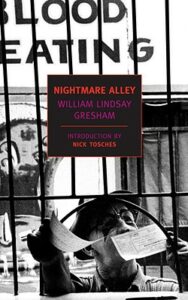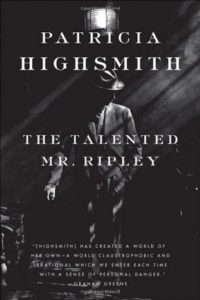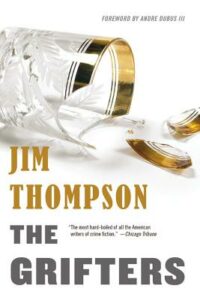Con men flourish in two diametrically opposite times—when the people have nothing and are desperate for anything that will raise them out of poverty; and when there is boundless plenty for the vast majority, when countries are newly awash with easy money, and there are countless newly rich men and women who can just as easily be separated from their money as they acquired it.
My book How To Kidnap The Rich is set in India, a country which is in both of these moments at once. For hundreds of millions of its very poorest, very lowest caste people, many former agricultural workers newly urbanised, every day can be a pitfall in being separated from their hard earned pittance of a salary by the army of hustlers, petty politicians, policemen, middle-men, holy men that prey on their hopes and dreams, and their precarious existence on the edge of poverty. For the few tens of millions of the upper middle class, India is the latter, where their incomes have grown tenfold since the 90s, and they fight now for the intangibles, for status, for culture, for art and experiences, and for that most important status good of all—their children’s educations.
Con men do very well in this newly rich India, and are often men from the first India looking to strike out a path in the second in search of their own wealth and escape from the strictures of a society that enforces social status with an iron fist.
Here is a list of my favourite books about hucksters, hustlers, con men big and small, desperate for their own piece of the action. You’ll notice how many of the books are set in mid-twentieth century America, a country which was the richest place that had ever existed in the history of the world, filled with newly rich citizens ripe for exploitation, ripe for crime, ripe for the taking, as well as an underclass, outlaws of wealth, race, gender, sexuality, who were cut off from social protections, social advancement, even social existence.

Huey Long, by T. Harry Williams
One of the quintessential political biographies, dazzlingly researched and written, about a figure who’d do as well in India today as he did in the America of the 1930s. A consummate liar, an abuser of mass media politics and showmanship, a political machine embezzler who used populism to break the old interests and replace them with his own. Long would tell diametrically opposed stories of his childhood to different audiences on the same day, and walk away with their votes. A genius at vote bank politics who produced a political machine that survived his death by 50 years. Williams shows that the best grifts are always the ones blessed outwardly by legality, inwardly by emotion, so much so that many Americans revere Long as a socialist genius long after all of his various tricks have been long exposed.

Nightmare Alley, by William Lindsay Gresham
A devastatingly cynical book about mid-century America, a long ignored classic that is being (re-)filmed by Guillermo del Toro with Bradley Cooper and Cate Blanchett. A carnival huckster connives and cheats his way to the top of the entertainment world by tricking an alcoholic friend out of his high-class mesmerism act—but finds that the world of the rich is just as dangerous as where he came from when he gets embroiled in a plot to defraud an elderly millionaire. Features one of the best femme fatales in literature. A book that is described time and time again as pitch black, and with very good reason. The last few chapters are a gorgeously, beautifully poisonous gut-punch, one of the most fitting tragic endings of any book I can think of.

Addie Pray, by Joe David Brown
One of the best, freshest, gloriously cynical, narrators in twentieth century American fiction, in another book that has been long ignored, even though it was filmed in the 70s as the Oscar-winning Paper Moon. 11 year old orphan Addie Pray works a Bible racket in the Deep South with her accomplice, the middle-aged Long Boy. With a narrative voice reminiscent of True Grit, this is a deep yet rollicking and wisecracking exploration of maturity, girlhood, femininity in a male-dominated world, the intricacies of various Depression-era scams, and paternal love. A gloriously addictive portrait of America at a time when it was threatened with mass immiseration, and how some of its citizens decided it was high time to take advantage.

The Talented Mr Ripley, by Patricia Highsmith
The quintessential American novel. Everything that can be said about it has—gender, class, sexuality, the meeting of the worlds Old and New. I’ve always read it with a nod to modern India—how does a person break out of a rigid social, educational and class system when every exit is barred? By stealing someone else’s life, it turns out, and being handsomely rewarded all the way. Many modern millennial novels, post-crash, post-2008, post-meritocracy, post-Obama, are clearly deeply influenced by it, but lack the playful and delightful immorality of Tom Ripley, as well as Highsmith’s trademark lack of judgement.

The Big Con, by David Maurer
The original con man book, vastly influential across literature and film. The DNA of post-war American entertainment looks vastly different without professor of linguistics Maurer’s dive into the criminal demi-monde of the 1930s. Con men and novelists are of course the same creature, creating false realities out of thin air that their audience can end up pledging their lives on. Every Gryffindor tattoo is testament to that. Maurer’s background leads him to write down the patter, the lies, the dialogue verbatim, and is an utterly invaluable historical document. Much of the modern mythomania around finance, art, cryptocurrency, AI, sounds like it came straight from the book.
The Grifters, by Jim Thompson
Jim Thompson hates humans, we venial, foolish, weak creatures, and we love him for it. One of the quintessential Tinseltown novels – one of the best exposing the city that the West builds so much of its stories and self-image around. Roy and Lilly Dillon are one of the best son-mother pairings in literature, both victims and perpetrators, both pitiable and hateable—less conman/conwoman than conson and conmother—their love for each other pure poison. Every paragraph has a killer line, with a noirish tone that never outdoes its initial welcome, never fails to elicit its intended emotion, and never grates – a rare, rare feat. It also totally captures the sometimes meaningless, pointless smallness of the conman, as well as exploding that timeworn lie, the one we readers will never tire of, that of the existence of the family, the fraternity of criminals.

Hullaballoo in the Guava Orchard, by Kiran Desai
One of my favourite Indian novels, and one of the most unjustly ignored despite the author’s later fame. It can best be described with one of the words I hate most about Indian literature—kaleidoscopic. A freewheeling trip through small-town India, through its calumnies, secrets, hypocrisies, when the young failson Sampath Chawla accidentally becomes a holy man by decamping to the titular location. Whether you think he’s a conman or not will be based on what you think about masculinity, about the role of first-born sons in society, whether you believe in his guilt or innocence. A free-wheeling raucous satire on men and the lies they construct so readily and easily, the destruction they cause, just to make an easy buck in a world gone insane.
***



















